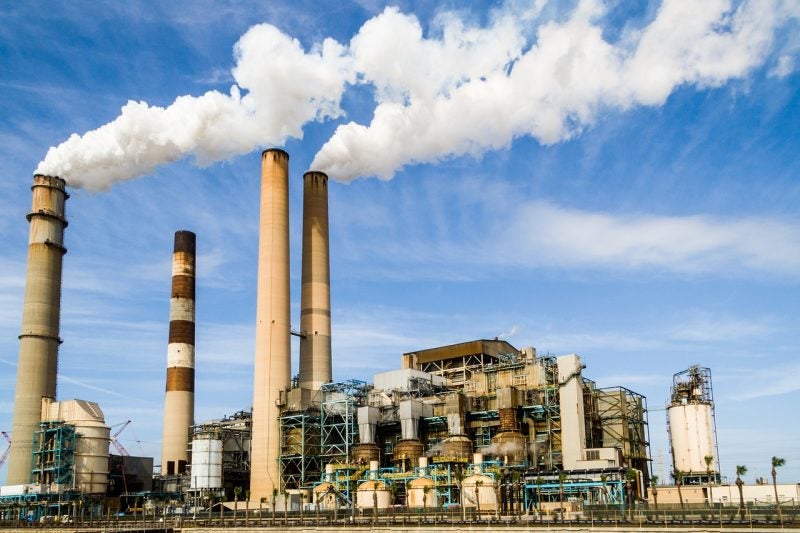
For oil and gas in 2020, making a net-zero emissions target is an “attractive business prospect”. This is how OMV CEO Rainer Seele described the idea last week, when Offshore Technology asked if his company was considering making a pledge like many have.
In line with the Paris climate agreement, many European companies have made pledges drastically cut their emissions over the next 30 years. With every new promise, pressure mounts on American companies to do the same.
The US giants have made some effort: Chevron aims to cut gas flaring by 25% and methane emissions by 20%, and Phillips 66 says it is making greener investments.
However, there has been an Atlantic divide in attitudes to the climate. Reports by American companies continue to target profit and increasing extraction, with climate targets falling behind. By comparison, Royal Dutch Shell released its 2019 report this week, the first page of which shows off executive quotes about the Paris Agreement.
Middle Eastern and Asian companies often do not have the freedom to choose their production levels. Chinese and Arab state-owned corporations continue to ramp up production as their national governments demand. While those governments have principally agreed to the Paris Agreement, they show no signs of acting on it.
What is net-zero worth?
Not all climate pledges are worth the same. Few promise to cover “scope 3” emissions, those indirectly produced by emitter activity but not owned or produced by the reporting emitter . These are especially difficult to tackle, and to do so companies must diversify, innovate or use carbon offsetting schemes.
While impressive targets bring positive headlines, they come with criticism. Climate campaign group Friends of the Earth called recent net-zero announcements “inadequate and cynical”, while some pledges have been said to lack detail. There are even critics within the industry.
Shell’s head of gas and power Maarten Wetselaar recently said: “I don’t think we need to get into an arms race of CO2 targets — it’s much more important we execute our strategy to bring down our net carbon footprint.”Some consider the concept of net-zero announcements to be a waste of time. On 6 March, Exxon chief executive Darren Woods said net-zero targets were “a beauty competition” which his company would avoid.
He said: “Individual companies hitting targets and then selling assets to another company so that their portfolio has a different carbon intensity has not solved the problem for the world. It hasn’t made a dent in it. And in some cases, if you’re moving to a less effective operator, you’ve actually made the problem worse.”
The first companies to target net-zero emissions
Italian energy company Eni said it would reach net-zero emissions by 2030 in March 2019. However, it is only looking at emissions directly made by its upstream operations (“scope 1”). This means it will not consider emissions from what it buys or sells.
Before then, it plans to cut all routine gas flaring and generate 5GW of renewable electricity by 2025.
Spanish producer Repsol says it was the first oil and gas company to commit to net-zero emissions, aiming for 2050. It made this commitment in December 2019, also setting intermediate targets to cut emissions by 10% in 2025.
The company says it will do this via carbon capture, reforestation and using “other natural climate sinks”. It will also diversify its business, increasing production of green hydrogen and plant-derived biofuels.
Energean Oil and Gas claims to be the first UK-listed company to make a net-zero by 2050 target. It committed to the UN plan for 1.5°C in December 2019, but did not give details of its plans.
Relying on CCS?
Norwegian state-owned operator Equinor has made a slightly different pledge, committing to near-zero emissions by 2050. In January 2020, it looked to using carbon capture and green hydrogen, as well as offshore wind generation, to eradicate most of its scope 1 and 2 emissions.
Lundin Petroleum will rebrand as Lundin Energy under its plan for carbon neutrality. The Swedish company announced in January of this year that it will eliminate greenhouse gas emissions by 2030.
To do so, it will electrify rigs to decrease the carbon intensity of every barrel of oil equivalent to below 4kg by the end of this year. It also plans to use carbon capture to offset “all business and operationally related air travel emissions”.
UK-based BP included scope 3 emissions in its net-zero by 2050 promise. It made its announcement in February 2020, during its new CEO’s second week. It was criticised for lacking detail, but did say it would leave trade associations who did not agree with climate action.
Shell and Total both say they support the Paris Agreement’s ambition to keep global temperature rises to less than 2°C. Both have made climate pledges, but neither have moved toward net-zero emissions.



